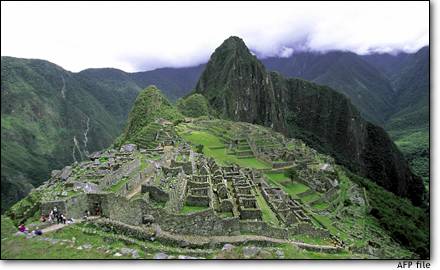American Indians work to preserve their languagesIn the Lakota language, a single word expresses the awe and connectedness with nature that some feel looking at the Northern Lights. In Euchee, the language makes no distinction between humans and other animals, though it does differentiate between Euchee people and non-Euchee.
And the Koasati language of Louisiana provides no word for goodbye, since time is seen as more cyclical than linear. To end a conversation, you would say something like: "This was good."The situation is dire:
Can they be saved? Last month, representatives from Indian groups around the country met with linguists and other academics in Philadelphia to see what they could accomplish together.
"We're talking about an emergency situation," said Richard Grounds, a speaker of the Euchee language and co-organiser of the meeting, held at the University of Pennsylvania Museum of Anthropology and Archaeology.More unique Native concepts:
Some languages, for example, have no way to give directions using left and right, because their speakers navigate with a less self-centred view of the world than we do, said Leanne Hinton, a linguist at the University of California, Los Angeles. They think more in terms of local geography.
Ryan Wilson, a member of the Oglala Sioux tribe, said the quality his people value most in a man is something like courage, but includes a degree of independence and perseverance. It has no direct English translation, and with the word may go the idea and the reason it once mattered.
Wilson, who is president of the National Alliance to Save Native Languages, said there was also a word that describes the feeling that you cannot live without someone. It is similar to love, but something is lost in that translation.










